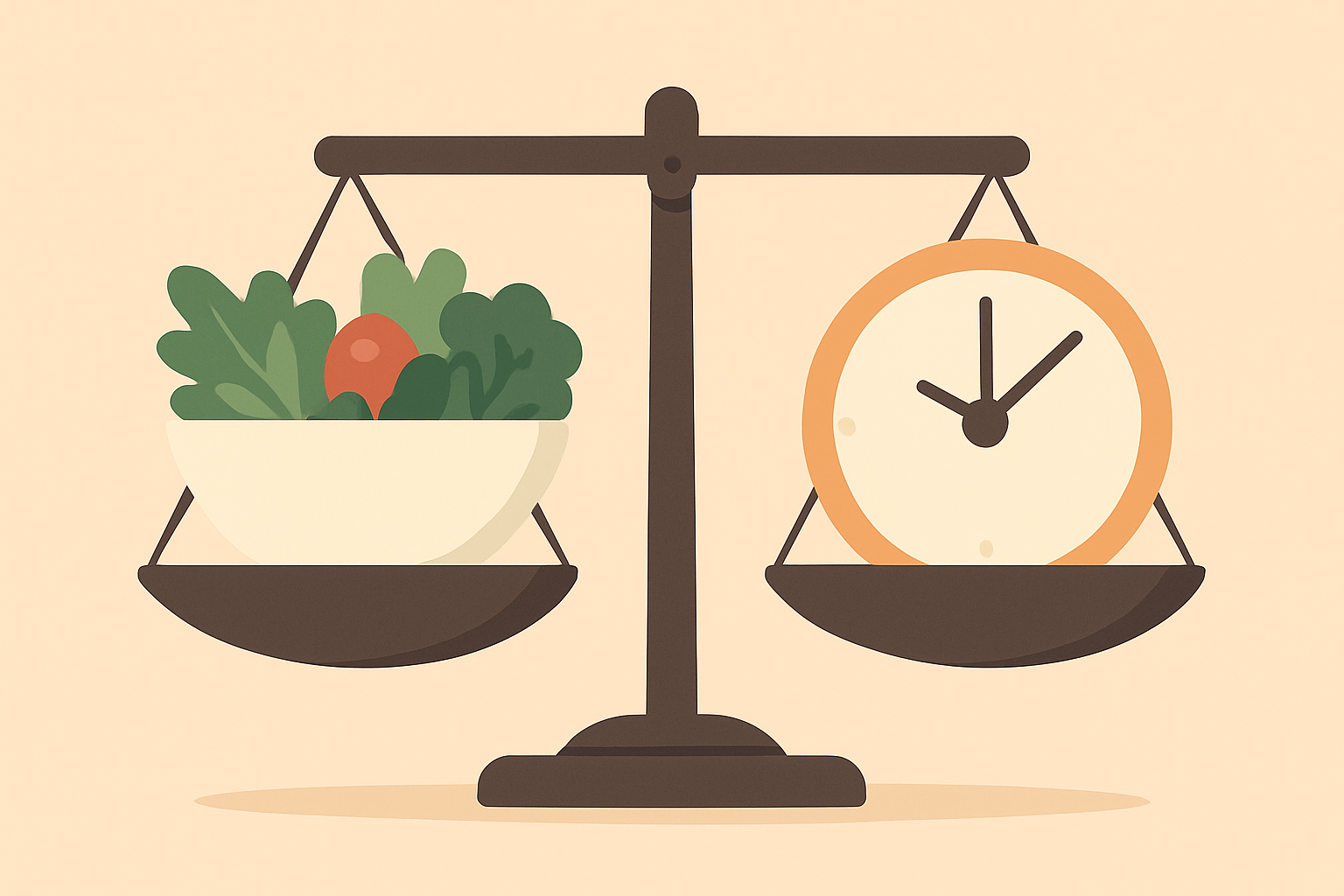
Understanding Calorie Deficit and Sustainability
A calorie deficit occurs when you consume fewer calories than your body needs to maintain its current weight. It's a commonly recommended method for losing weight, as it forces the body to use stored fat as energy. However, sustainability is crucial in maintaining weight loss over time without falling into unhealthy habits or experiencing "yo-yo" dieting. This balance ensures that as you exert control over your calorie intake, you also support long-term health.
While a calorie deficit is essential for weight loss, it's important to understand the broader concept of energy balance. This involves balancing the calories consumed with those expended through daily activities and metabolism 1. By managing both intake and output, you may achieve sustainable weight results.
How Calorie Deficit Works
Creating a calorie deficit begins with determining your Basal Metabolic Rate (BMR), the number of calories your body needs to maintain basic physiological functions while at rest. Adding activity levels gives the total energy expenditure needed to maintain your current weight. By consuming fewer calories than this, you place your body in a deficit.
- Eating smart: Choose nutrient-dense foods that keep you full longer.
- Exercise: Increase physical activity to boost calorie burning.
- Be aware of metabolic adaptation, a process where your metabolism slows down over time to conserve energy when calorie intake is low.
Balancing Deficit and Long-Term Sustainability
Sustainability is key for long-term success in weight management. To maintain a lower weight after reaching your goal, it's essential to integrate healthy habits that don't rely solely on calorie restriction.
- Focus on a balanced diet with a variety of nutrients.
- Incorporate pleasure in eating; allow occasional treats.
- Emphasize healthy habits like regular sleep and stress management.
Avoiding the Pitfalls of Severe Deficits
Severe calorie deficits can lead to nutrient deficiencies, loss of muscle mass, and metabolic adaptations that make future weight loss more difficult. This can cause your body to conserve energy more aggressively, making it harder to lose weight over time.
- Bare minimum calorie intake: Ensure not to drop below safe caloric levels to meet minimum daily energy needs.
- Be aware of the risk of disordered eating: Avoid obsession with calorie counts.
Finding What Works for You
Every individual's journey to weight loss is unique, and what works for one person may not work for another. By focusing on the principles of a healthy calorie deficit combined with sustainable habits, you can find the correct balance for your body.
- Regularly reassess your energy needs as activity levels and weight change.
- Seek professional guidance if you're unsure where to start.
- Monitor hunger and adjust caloric intake if needed for better management.
Frequently Asked Questions
What is a safe calorie deficit for weight loss?
A safe calorie deficit varies by individual, but a modest reduction from your total daily energy expenditure is generally recommended. It's best to consult a healthcare professional for personalized advice.
Can a calorie deficit be harmful?
Yes, a severe calorie deficit can lead to negative health impacts like nutrient deficiencies and metabolic adaptations, reducing muscle mass and energy levels.
How can I maintain weight loss sustainably?
Incorporate balanced nutrition, regular exercise, stress management, and sufficient sleep into your lifestyle. Allow occasional indulgences to avoid feeling deprived.